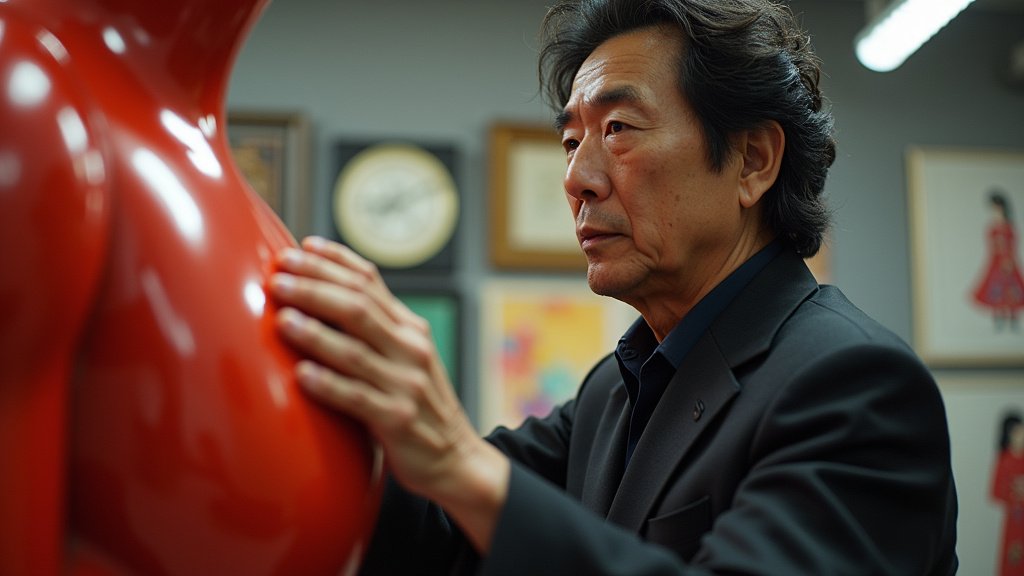The Nobel Prizes for 2024 have honored exceptional minds who have made significant strides in diverse fields, from medical science to global peace. This year’s laureates have addressed some of the world’s most pressing challenges and contributed to our collective understanding of science, literature, and social issues. Let’s delve into each category and explore how their groundbreaking work has changed perspectives and could shape future developments.
Physiology or Medicine: Unveiling the Complex World of microRNA
The Nobel Prize in Physiology or Medicine went to two American scientists, Victor Ambros and Gary Ruvkun, who have made monumental discoveries about microRNA, a small yet crucial RNA molecule. Ambros and Ruvkun’s work, which dates back to the early 1990s, provided the first insight into these molecules’ role in regulating genes after they have been transcribed from DNA.
MicroRNAs work by binding to messenger RNA (mRNA) and either degrading it or blocking its translation into proteins. Through this mechanism, microRNAs help control cell differentiation, development, and function. Over the years, the discovery has sparked a surge of research into how these molecules influence everything from growth and aging to diseases such as cancer and cardiovascular conditions.
For years, researchers struggled to understand why certain genes were “turned on” or “off” at specific times. Ambros and Ruvkun’s work showed that microRNAs serve as a sophisticated regulatory network, providing a new layer of genetic control beyond the traditional DNA-to-protein path. This research has inspired new diagnostic tools, therapeutic approaches, and cancer treatments targeting microRNA pathways, offering potential to treat a wide range of conditions by correcting dysregulated gene expression.
Physics: Transforming Technology with Artificial Neural Networks
The Nobel Prize in Physics was jointly awarded to John J. Hopfield and Geoffrey E. Hinton for their pioneering work in artificial neural networks, the foundation of modern artificial intelligence (AI). While Hopfield and Hinton have been recognized for individual achievements, together, their work has pushed the boundaries of machine learning and AI technologies.
Hopfield is renowned for developing the “Hopfield network,” an artificial neural network that helped researchers understand how machines can emulate the human brain’s associative memory. This model was among the first to demonstrate how computers could store and retrieve memories, a key breakthrough for building machines that can recognize patterns and learn over time. Hinton, often called one of the “godfathers of AI,” introduced the concept of “backpropagation,” an algorithm that enables neural networks to learn by adjusting weights in response to errors. This technique became the cornerstone of deep learning, allowing AI systems to improve through experience.
Today, AI applications range from medical diagnostics to climate modeling, creating opportunities for innovations across industries. The implications of this technology are vast, as these neural network models help doctors detect diseases earlier, empower autonomous vehicles, and provide insights into complex data sets for social sciences and economics. With their advancements, Hopfield and Hinton have transformed AI from a theoretical concept into a practical tool that reshapes modern society.
Chemistry: Decoding Life’s Building Blocks with AI-Driven Protein Folding
The Nobel Prize in Chemistry has spotlighted a milestone in biotechnology and computational science. This year, the prize was awarded jointly to David Baker and the team of Demis Hassabis and John Jumper for breakthroughs in protein structure prediction and design.
David Baker has pioneered computational protein design, allowing scientists to design novel proteins for specific tasks, such as targeting pathogens or catalyzing chemical reactions. Baker’s research has spurred developments in everything from vaccine design to synthetic biology, expanding our capability to engineer biological functions that do not naturally occur.
Hassabis and Jumper’s work with AlphaFold, an AI model developed by DeepMind, has unlocked a new era in biological research. AlphaFold can predict the three-dimensional structure of proteins with unprecedented accuracy, solving a decades-long scientific challenge. Proteins are the molecular machines of life, but until AlphaFold, predicting their intricate structures took years of laboratory work. This advancement allows scientists to analyze proteins linked to diseases such as Alzheimer’s, cancer, and COVID-19, speeding up drug discovery and therapeutic design.
The combined achievements of Baker, Hassabis, and Jumper signify a shift in biology and chemistry, making it possible to tackle diseases and environmental challenges through computational tools and protein engineering.
Literature: Han Kang’s Poetic Exploration of Trauma and Identity
South Korean author Han Kang has won the Nobel Prize in Literature, capturing global attention with her profound exploration of identity, trauma, and the human psyche. Known internationally for her novel “The Vegetarian,” Kang’s works confront social taboos and delve into historical trauma, themes that resonate across cultures and generations.
In “The Vegetarian,” Kang weaves a haunting narrative of a woman who renounces meat in a quiet rebellion against societal expectations. Her introspective style and stark prose draw readers into the emotional core of her characters, prompting a reflection on the nature of conformity, autonomy, and violence. Kang’s writings also often reference South Korea’s turbulent history, including themes of resistance against authoritarianism and the scars of war, offering both a deeply personal and universally relevant perspective.
Through her bold and poetic voice, Han Kang not only enriches Korean literature but also provides a lens through which readers worldwide can examine complex social issues. Her Nobel Prize recognition highlights the growing influence of Korean literature on the global stage and reaffirms literature’s power to foster empathy and understanding.
Peace: Nihon Hidankyo’s Advocacy for a Nuclear-Free World
The 2024 Nobel Peace Prize was awarded to Nihon Hidankyo, the Japan Confederation of A- and H-Bomb Sufferers Organizations. For decades, Nihon Hidankyo has championed nuclear disarmament, advocating for a future where no nation possesses nuclear weapons.
The survivors, or “hibakusha,” have firsthand experience with the catastrophic effects of atomic warfare. Through testimonials, educational campaigns, and international conferences, Nihon Hidankyo has brought attention to the humanitarian consequences of nuclear weapons. Their mission is not only to eliminate nuclear arms but also to prevent future generations from enduring the same suffering.
Nihon Hidankyo’s advocacy has helped to inspire treaties and international agreements aimed at limiting nuclear weapons. By honoring them, the Nobel Committee sends a powerful message about the importance of preserving the testimonies of hibakusha and the collective responsibility to prevent nuclear escalation. Nihon Hidankyo’s Peace Prize acknowledges the value of witness testimony in peacebuilding and the enduring impact of survivors’ voices in shaping a safer world.
Economic Sciences: How Institutions Shape Nations
This year’s Sveriges Riksbank Prize in Economic Sciences in Memory of Alfred Nobel went to Daron Acemoglu, Simon Johnson, and James A. Robinson for their research on how institutions influence economic prosperity. Their findings have reshaped our understanding of why some nations flourish while others face chronic poverty and instability.
Through comparative studies and historical analysis, Acemoglu, Johnson, and Robinson have shown that political and economic institutions—such as property rights, rule of law, and democratic governance—play a pivotal role in fostering or hindering economic growth. Their book, “Why Nations Fail,” argues that “inclusive” institutions that empower citizens and distribute resources fairly are fundamental to sustained economic success.
Their research has influenced global policy debates on development and poverty reduction, encouraging policymakers to focus on building inclusive institutions. As the world grapples with growing economic inequality and political tensions, their work provides a framework for addressing these challenges by strengthening the foundations of societies.
Reflecting on the Legacy of the Nobel Prizes
The 2024 Nobel Prizes highlight the profound impact of individual dedication to scientific discovery, artistic expression, and social advocacy. Each laureate has not only contributed to their respective fields but has also inspired future generations to question, innovate, and strive for a better world.
In honoring these achievements, the Nobel Committee reaffirms the importance of intellectual curiosity, creativity, and ethical responsibility. As these laureates continue to influence their fields, the Nobel Prizes serve as a reminder of the collective potential humanity holds when driven by a desire to understand, protect, and improve our world.




